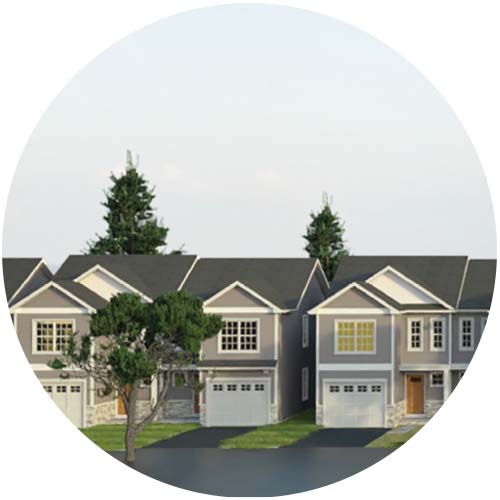Second Dance: Chapter 35

"I’m just an exercise equipment salesman from Queens, and I can’t deal with all these issues"

Rabbi Klarberg was a pleasant enough person, though he still made it seem like he was doing Reuven a favor every time they met. This was their third conversation, and Reuven already felt like he would have a signature achievement to show the people soon.
He was winning.
The rav was getting remarried on Lag B’omer, and he was open to starting a new job at the end of the summer, in time for the Yamim Noraim, he said. But he still didn’t know if this job was it. He just didn’t have a good sense of what it entailed, he explained, and he wasn’t at the stage of his life when he could afford to make a mistake.
“It has to work, you know?” he said, smiling in a disarming way that made Reuven like him even more. “I’m not a yungerman who can dust himself off and say, ‘Okay, next, let’s move on.’ And I already was yotzei all the drama and politics over the last 35 years of rabbanus, I just don’t know. I have to be sho’eil eitzah and see if this is b’chlal for me… but anyhow, Reb Reuven, you know all this already. You didn’t come back here to hear my sefeikos again. Tell me what’s doing by you? Vos hert zich in the shechunah?”
Reuven knew that it wasn’t wise to unburden himself about neighborhood issues to a man he was trying to lure as its new rav, but he couldn’t help himself. Rabbi Klarberg had that manner that made you want to share, and Reuven wasn’t holding back.
“We need a rav, and every day that we don’t have one, the cracks grow wider. I’m just an exercise equipment salesman from Queens, and I can’t deal with all these issues.”
There was a flicker of interest in Rabbi Klarberg’s eyes and he leaned forward. “Like what? What sort of issues?”
“Like what?” Reuven sighed, and shook his head from side to side with a “you won’t believe this,” expression.
“Okay,” he said. “First, I managed to make a new enemy a few weeks ago. There’s a guy, Hirshler, one of the Flatbush chevreh, he made a sheva brachos in his house and the music was loud. He lives on York, it’s a more happening block, fine, no problem. But about 11 o’clock, some of the neighbors start texting me that it’s a violation of the bylaws, no music after ten-thirty without a permit. Now, we pay for a security company that works in several developments, but there’s not that much we can do. We call the guy, till he shows up is a whole maiseh, and then he comes in half asleep in a crumpled little uniform and tells them to shut the music, it’s not that effective. No Yid is going to call a real police officer on another, right?”
Rabbi Klarberg got it, Reuven could see that. He was weighing the options in his mind.
“Nu? What did you do l’maiseh?”
“I had no choice. People want to go to sleep, that’s normal, someone has to be able to enforce that. It’s legitimate. So I got dressed and walked over and very apologetically, but very firmly told him that the music had to stop. Period.”
Rabbi Klarberg nodded, encouraging Reuven to go on.
“The baal simchah wasn’t hearing any of it. He explained that the neighbors were fine with it, it was a special simchah, the kallah had waited for a long time to find her bashert, and they had already paid the singer for three hours, there was no way they could stop yet. He told me his wife’s favorite song is ‘Mamma Rochel’ and they hadn’t even gotten there yet.”
As Reuven recalled that night, he grew angry all over again, his face growing redder as he spoke. “I told him that a neighborhood runs on rules, and mutual respect between residents is the first rule, so he should please accommodate that.”
“And he asked you who you thought you were, right?” asked Rabbi Klarberg with a half-smile.
“Yes! He said, ‘Mi samcha, you’re not the balabos here,’ that’s mamesh what he said. And I tried explaining my achrayus, but he didn’t want to hear. So I told him that as the chairman of the council, it was my right, and then he told me that it was time for me to leave Queens already, and he and his friends were laughing.”
Reuven let out his breath. “I just left. I left. I couldn’t anymore.”
Rabbi Klarberg nodded. “And don’t tell me, the next day, the neighbors who had called you didn’t thank you, and they never let on to him that it had bothered them at all, right?” Rabbi Klarberg said flatly, a statement more than a question.
“Right!” Reuven said, astounded yet again by the perceptiveness of the man across the table from him. “Exactly, they avoided my gaze the next day, but they were all busy cozying up to Hirshler, like always. And on Shabbos, he walks by me during kiddush and squeezes me on the shoulder and says, ‘Ah, Reuven, you’re gevaldig, what would we do without you?’ like I’m a cute three-year-old kid who annoyed him and he’s past it. And all his friends, the ones who called me kvetching about the noise, they were laughing like it was the funniest joke ever.”
It felt so good to talk. Reuven hadn’t even been able to vent to Nechama, because he knew exactly what face she would make. She would tell him that she was just becoming friends with Mrs. Hirshler, and insinuate that he had ruined this developing relationship by asking for basic menschlichkeit from her husband.
Rabbi Klarberg caught him off guard now. “And how do you think having a rav would solve a problem like that, Reb Reuven? Do you expect a rav to walk into a home and ask them to shut the music?”
Reuven didn’t love the question, which felt a bit like a set-up to him. “I feel like if we had a rav, then these situations wouldn’t arise in the first place. There would be a certain respect in place. Now, it’s a hefker velt.”
Rabbi Klarberg nodded kindly, but his expression was one of sympathy, not agreement.
“I hear, interesting. And perhaps even true, in theory, but on a practical level, that’s not how things work.”
He was quiet, then, letting Reuven think about what he said.
Inside, Reuven was bristling. He hadn’t come here for psychoanalysis, thank you very much, he had just been trying to explain the feeling of disorder in the neighborhood. He didn’t need a rav to shut off music, but he did need a rav so that it wouldn’t be such a free-for-all. That’s all he had been trying to say.
“How do things work?” Reuven finally asked, more out of respect than interest. He felt like he had to say something.
“Reb Reuven.” Rabbi Klarberg stuck out his hand and gently patted Reuven’s arm. “I’m wondering if this position is suited to you? To me, you seem a bit overqualified for it, and you take it very seriously, which is admirable, but it’s giving you stress. Clearly. You worked hard your whole life, shouldn’t retirement be a time to relax?”
Then it got really quiet and Reuven didn’t even care if it was impolite. He had nothing more to say.
to be continued…
(Originally featured in Mishpacha, Issue 913)
Oops! We could not locate your form.


